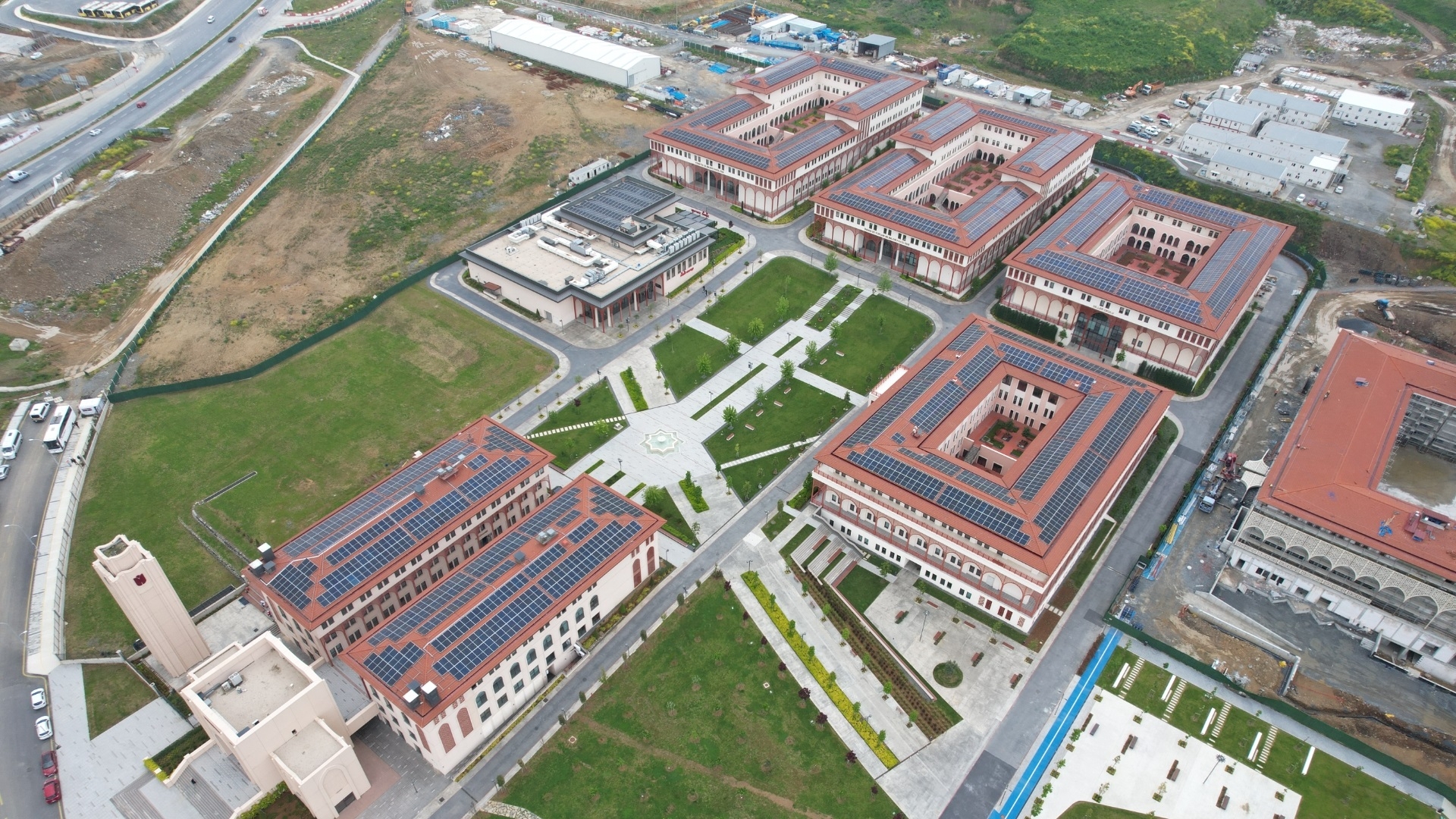


Ibn Haldun University will produce its energy from renewable and zero-emission sources. In line with the "Green Campus" goals, our University will make a small but important contribution to the future of our country and the world by using sustainable resources, while eliminating the increasing energy costs by producing more than the electricity it consumes, with solar energy panels that have started to be installed on the roofs of the buildings on our campus.
To Be Put Into Service in June-2023
The solar energy systems, which are included in the master plan of the Ibn Haldun University Complex and whose installation has been accelerated due to the globally increasing energy costs, will be placed on the roof of all the buildings whose construction has been completed in our Complex, as well as on the existing open carports (Solar Carport). As new buildings are built, the installation of SES on the roofs of these buildings will continue. Thanks to this infrastructure, where the energy produced by the SES system will be used in the heating, cooling and lighting of the buildings in our complex, it is planned to produce approximately 20% more of the energy consumed on the campus. SES infrastructure installation will be completed and put into service in June2023.
Why SES?
Solar energy systems, which convert the rays they receive from the sun into energy due to their structure, do not harm the nature as a clean energy source. By using solar energy, which has no risk of depletion, it is possible to save a great deal and contribute to minimizing energy dependence without being affected by increasing energy costs. In addition, SES systems make a significant contribution to the health of living things and the sustainability of nature, as they do not leave waste and do not cause air pollution.